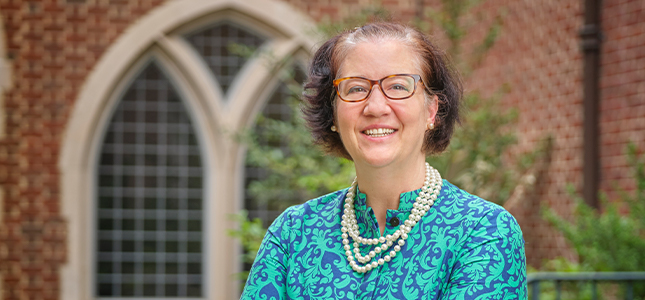December 5 is the deadline to submit comments on the Trump Administration’s recent action to gut the Affordable Care Act’s contraceptive mandate, which requires employer-sponsored health plans to ensure women’s access to free, effective contraception. This decision, announced in October in two Interim Final Rules, threatens serious harm to American children, because of the risk that women who lack access to contraception will become pregnant, contract Zika, and unwittingly transmit the virus to their developing fetus. Since 2015, as an exponentially expanding Zika epidemic swept across Latin America, the United States, and its territories, thousands of children around the globe have been born with microcephaly. On the U.S. mainland alone, almost 100 children have been diagnosed with microcephaly or other Zika-associated birth defects. In Florida, the Department of Health has recently reported a new, sexually transmitted, case of Zika in Miami-Dade County. In 2017 alone, 225 cases of Zika infection were confirmed in Florida; 119 are pregnant women, and three infants have been born with congenital Zika syndrome. New York City, more than 400 pregnant women have been diagnosed with Zika since January 2016 and at least 20 infants have been born with microcephaly or other Zika-associated birth defects.
The World Health Organization, Centers for Disease Control (CDC), and other health agencies have scrambled to reduce Zika’s threat by controlling the mosquito population and minimizing the risk of sexual transmission of Zika. The CDC have been particularly outspoken, urging women of reproductive age to consider Zika’s risks to a developing fetus when deciding whether to travel to a Zika-affected area and, indeed, whether to become pregnant at all.
In the face of such a dangerous disease, the Trump Administration’s drastic action to limit contraceptive access is both short-sighted and flawed legally. The Administration announced two new regulations in October authorizing expanded exemptions and accommodations for employers, universities, and other health plan sponsors who wished to deny women free access to FDA-approved contraception, based on the plan sponsor’s religious beliefs or “moral convictions” (82 Fed. Reg.47658 and 82 Fed. Reg. 47838). No exemption or accommodation was provided for plan sponsors seeking to opt out of any other health care service. These new rules make it quite likely that many, especially poor and middle-income, women, will be denied access to effective contraception. While the Fact Sheet accompanying the regulations states that low-income women whose employers opt out may seek contraceptive care through community health centers it conveniently ignores the fact that pending Republican legislation seeks to dramatically reduce federal funding for family planning services, including contraception, and that Republican efforts to repeal the Affordable Care Act would have authorized states to deny Medicaid recipients coverage for such services.
With infectious diseases like Zika, citizens expect government to take direct steps to minimize the chance of disease transmission and to advise them about how to protect themselves. Those most at risk for contracting the Zika virus are, as usual, the poor, who live in substandard housing that fails to protect them from mosquitoes and lack financial and other resources to access effective healthcare, including contraception and abortion. Further, in states like Florida and Texas, even women and girls with financial means are frequently prevented from obtaining the full range of reproductive health care by restrictive federal and state laws governing access to contraception and abortion.
Recent natural disasters compound the problem. Puerto Rico provides a striking example of the intersection of legal and economic barriers; similar problems exist in Florida and Texas. In Puerto Rico, two-thirds of all pregnancies are unintended; recent rates in Florida and Texas were 58% and 56%, respectively. Like their counterparts on the mainland, many Puerto Rican women, both married and single, want effective contraception, especially long-acting reversible contraception (LARC), such as IUDS and hormonal implants, which prevent pregnancy most effectively. However, until the ACA contraceptive mandate became law, LARC was out of reach for almost all middle-class and poor women because of its higher upfront costs.
Today, Puerto Rican women of all economic strata face significant hurdles in controlling mosquitoes and accessing healthcare, due to Hurricane Maria’s massive destruction of island infrastructure. Yet even before the hurricane struck, women living in Puerto Rico were at high risk of contracting Zika and of being unable to plan for the birth of a healthy child. Since December 2015 more than 34,000 people have been infected with Zika in Puerto Rico, more than 3,300 of them pregnant women. Nearly 150 infants have been diagnosed with serious Zika-associated birth defects.
Officials from the CDC and Puerto Rico’s Department of Health have worked over the last two years to increase public awareness of the risks posed by Zika, expand access to effective contraception, and minimize Zika transmission to pregnant women. However, since Hurricane Maria, efforts to combat Zika have largely stalled, as both federal and Puerto Rican government officials have focused on other pressing needs – food, safe drinking water, electricity, and other infrastructure repair.
In the face of recent natural disasters, the Trump Administration’s decision to gut access to contraceptive coverage threatens a public health emergency of immense proportion, risking the health of vulnerable women and children. At the very moment that women in Florida, Texas, Puerto Rico, and the U.S. Virgin Islands are in the greatest need of government assistance due to devastating hurricanes, the Administration has erected major barriers to contraception and effective family planning, limiting the ability of women and their families to make informed decisions about the risks of bringing a potentially disabled child into the world. This directly contravenes the Affordable Care Act’s command that “the Secretary of Health and Human Services shall not promulgate any regulation that– (1) creates any unreasonable barriers to the ability of individuals to obtain appropriate medical care; or (2) impedes timely access to health care services….” (42 U.S.C.A. § 18114).
While the Administration asserts that its new contraceptive coverage policy is necessary to preserve the religious freedom and moral convictions of employers and other health plan sponsors, its promulgation of two Interim Final Rules that limit only women’s healthcare access displays an utter disregard for the constitutional guarantees of equal protection, due process, and personal privacy. Finally, the decision to publish these controversial regulations as Interim Final Rules, with no opportunity for public notice and comment before they go into effect, contravenes the essential requirements of agency rule-making in a democracy.
Everyone committed to gender equity, access to preventative health care, and protecting the public from infectious diseases should consider commenting on the Interim Final Rules before the December 5 deadline. Here is the link.
–Linda C. Fentiman
(cross-posted with permission from PublicHealthLawWatch.org)



 Over the last few days, we have welcomed to the blogroll several new fabulous feminist colleagues from the Benjamin N. Cardozo School of Law at Yeshiva University:
Over the last few days, we have welcomed to the blogroll several new fabulous feminist colleagues from the Benjamin N. Cardozo School of Law at Yeshiva University: In the last two days, we have welcomed to the blogroll twelve new fabulous feminist colleagues from Loyola Law School Los Angeles:
In the last two days, we have welcomed to the blogroll twelve new fabulous feminist colleagues from Loyola Law School Los Angeles: The Role of CEDAW. Here is the publisher’s description:
The Role of CEDAW. Here is the publisher’s description: It reprints the tables of contents of 150 (non-law) magazines and journals for researchers scanning the current literature in the field of Gender and Women’s Studies. I find that this is a fantastic way to quickly become familiar with articles being published non-law fields.
It reprints the tables of contents of 150 (non-law) magazines and journals for researchers scanning the current literature in the field of Gender and Women’s Studies. I find that this is a fantastic way to quickly become familiar with articles being published non-law fields. Last week, Deborah M. Weissman (UNC) published in the Raleigh News & Observer an op-ed entitled
Last week, Deborah M. Weissman (UNC) published in the Raleigh News & Observer an op-ed entitled 

 From the (New Zealand) Dominion Post, this article about a government-appointed appointed working group that will look at the country’s goods and services tax (akin to the sales tax imposed in the U.S.):
From the (New Zealand) Dominion Post, this article about a government-appointed appointed working group that will look at the country’s goods and services tax (akin to the sales tax imposed in the U.S.): The indominitable Jennifer Weiss-Wolf (previously profiled on Feminist Law Profs
The indominitable Jennifer Weiss-Wolf (previously profiled on Feminist Law Profs 



![Divided We Stand: The Battle Over Women's Rights and Family Values That Polarized American Politics by [Spruill, Marjorie J.]](https://images-na.ssl-images-amazon.com/images/I/51OMvhQMyGL.jpg)
 Noa Ben-Asher (Pace) has posted to SSRN her article,
Noa Ben-Asher (Pace) has posted to SSRN her article,  Allison Anna Tait (Richmond) has published
Allison Anna Tait (Richmond) has published 
 A group of
A group of 

